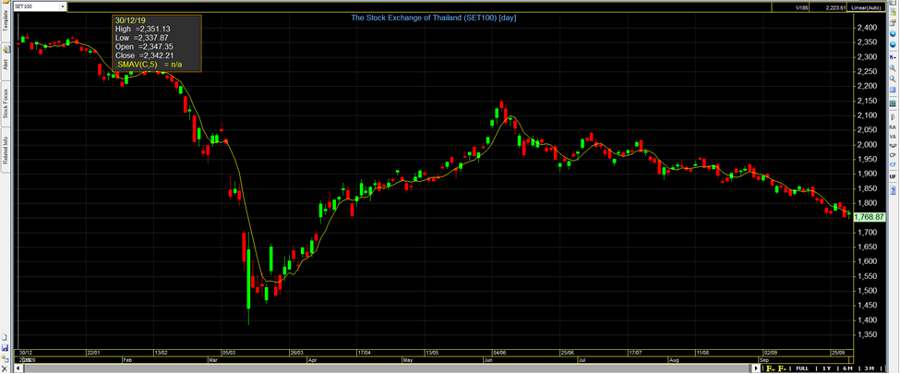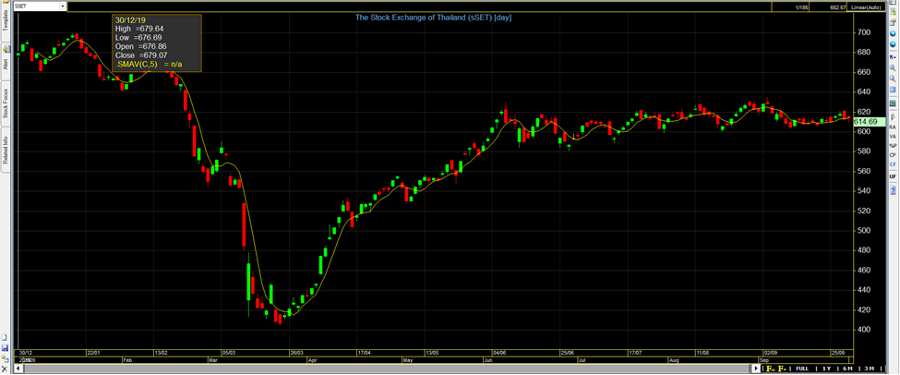I WANT
RELATED LINKS
I WANT
RELATED LINKS
RELATES LINKS
I WANT
RELATES LINKS
Services
Related Links

คำค้นหาที่แนะนำ
ผลการค้นหา "{{keyword}}" ไม่ปรากฎแต่อย่างใด
ข้อแนะนำในการค้นหา
- ตรวจสอบความถูกต้องของข้อความ
- ตรวจสอบภาษาที่ใช้ในการพิมพ์
- เปลี่ยนคำใหม่ กรณีไม่พบผลการค้นหา
Use and Management of Cookies
We use cookies and other similar technologies on our website to enhance your browsing experience. For more information, please visit our Cookies Notice.
- Personal Banking
- Stories & Tips
- Salary Man
- What LTF will be when the tax deduction is expired?
- Personal Banking
- ...
- What LTF will be when the tax deduction is expired?
What LTF will be when the tax deduction is expired?
08-01-2021
It is a fund that invests in Thai stocks of at least 65% in order to educate the public for long-term investment. Increase liquidity in the stock market and make the market more stable. To incentivize investors to invest. The highlight of LTF is that it provides tax deduction rights. The LTF has gained immense popularity over the years, however, the LTF has expired in 2019. So many people have questions that when LTF is no longer tax-deductible What will be next. This article has answers.
Many investors may feel that since LTF has expired. Can't buy for a tax deduction, returns from investing in LTF throughout the first three quarters of 2020, and the question may arise. Is there still a fund manager to manage the LTF for us?
Figure 1 Figure of the SET Index as of December 30, 2019, compared with the SET Index on October 1, 2020, where the closing price of the SET Index on December 30, 2019, is 1,579.84 points. The SET index's close on October 1, 2020, at 1,247.59 points, which means that the price index dropped 333.32 points or equivalent to -21%.

Figure 2 Figure of the SET50 Index as of December 30, 2019, compared with the SET50 Index as of October 1, 2020, where the closing price of the SET50 Index on December 30, 2019, is 1,068.50 points. The SET50 index's closing date on October 1, 2020, stood at 788.02 points, which means that the price index dropped 280.48 points or -26.3%.

Figure 3 Figure of the SET100 Index as of December 30, 2019 compared with the SET100 Index as of October 1, 2020, where the closing price of the SET100 Index on December 30, 2019 is 2,342.21 points. The SET100 index's close on October 1, 2020, stood at 1768.87 points, which means that the price index dropped 573.34 points, or -24.5%.

Figure 4 Figure of the sSET Index as of December 30, 2019, compared with the sSET Index on October 1, 2020, where the closing price of the sSET Index on December 30, 2019, is at 679.07 points. The closing of the sSET index on October 1, 2020, stood at 614.69 points, which means that the price index fell 64.38 points or equivalent to -9.5%.

The average return of the 4 SET indexes declined significantly compared to the beginning of the year. Mainly due to the economic downturn. Which is the consequence of the COVID-19 epidemic. When the overall economy of the country is not good the profits of listed companies will also decrease. As a result, the share price has dropped considerably.
In addition, we can see that the major stocks (listed in SET50) have the greatest losses (-26.3%). While middle and small stocks had lower losses (-24.5% and -9.5%, respectively). This is partly because foreign investors invest in big stocks rather than mid and small stocks. And in the past, foreign investors have always sold net of Thai stocks. Which resulted in the price of major stocks falling harder than the market. Inevitably, LTFs that must invest in Thai stocks of at least 65% or more are affected by the overall bad market conditions. The more piles to invest in large stocks, the better. Will be affected by the falling price a lot.
However, if you look at LTF's 1-year historical results as of October 1, 2020, you will find that 24 funds have won the market with negative returns of less than 21% (and some Funds that have already received positive returns) (Source http://siamchart.com/fund-compare/LTF). Which if there is no fund manager to manage these stocks are unlikely to have any return on the market. This means that the fund manager is still taking care of investing in LTF funds for us and not being left out. (Which cannot be abandoned Because of the wrong standard of work). But the main reason that the price dropped Due to the overall bad situation of the Thai stock market separately
So, what can we do with our LTF?
The recommendation is if the sale is not due yet. Should continue to hold. Because if sold out in breach of conditions We must return to the Revenue Department the tax-deductible previously received from investing in LTF. Ready to pay the penalty and any additional money incurred. But if the conditions that can be sold Must consider what our investment goals are and what is the performance of the LTF that we hold? If we think that the LTF we hold is doing well. And our investment goal is a long-term investment. Should continue to invest
If that fund has a loss, we must consider the Problem of loss that occurred. It comes from the condition of the stock market that it fluctuates down. Or due to the performance of the fund itself that may not be as good as other funds. Currently, Peer Performance has been disclosed to compare fund returns and the group average for us to review every month. Including studying the policy How to invest in the fund that is a habit with us or not. Until then, consider it again, whether to hold it first or whether to sell it.
In summary, each investment period. We may experience volatility arising from the heavy economic crisis. As a result, our investment can have a loss. Investing in risky assets should therefore be a long-term investment. That gives us a long time to overcome that crisis.
Nipaphan Poonsathiensap CFP®, ACC Independent Financial Planner Writer and speaker